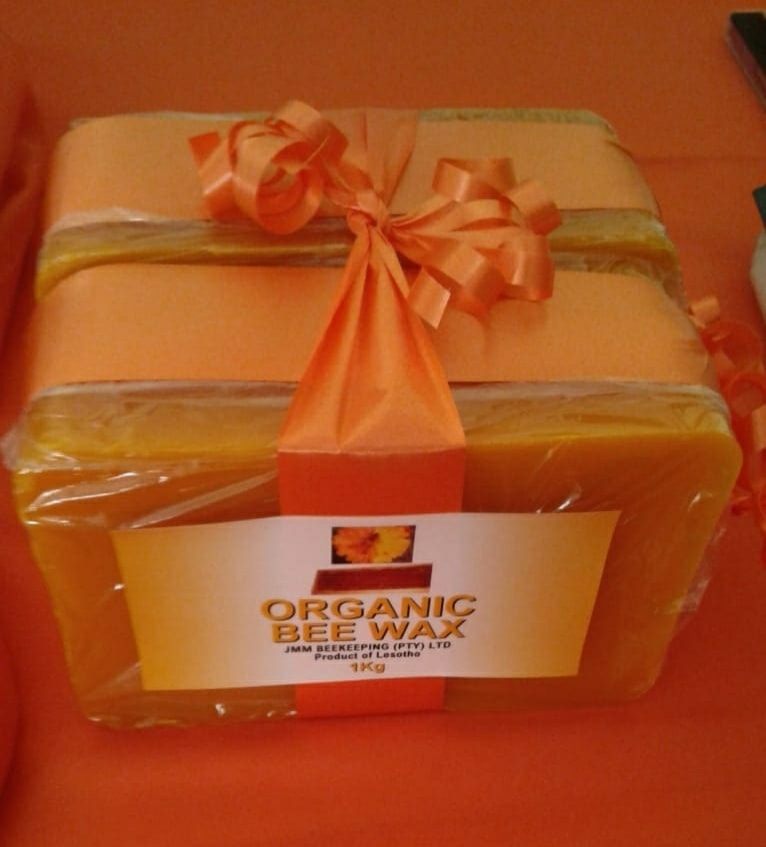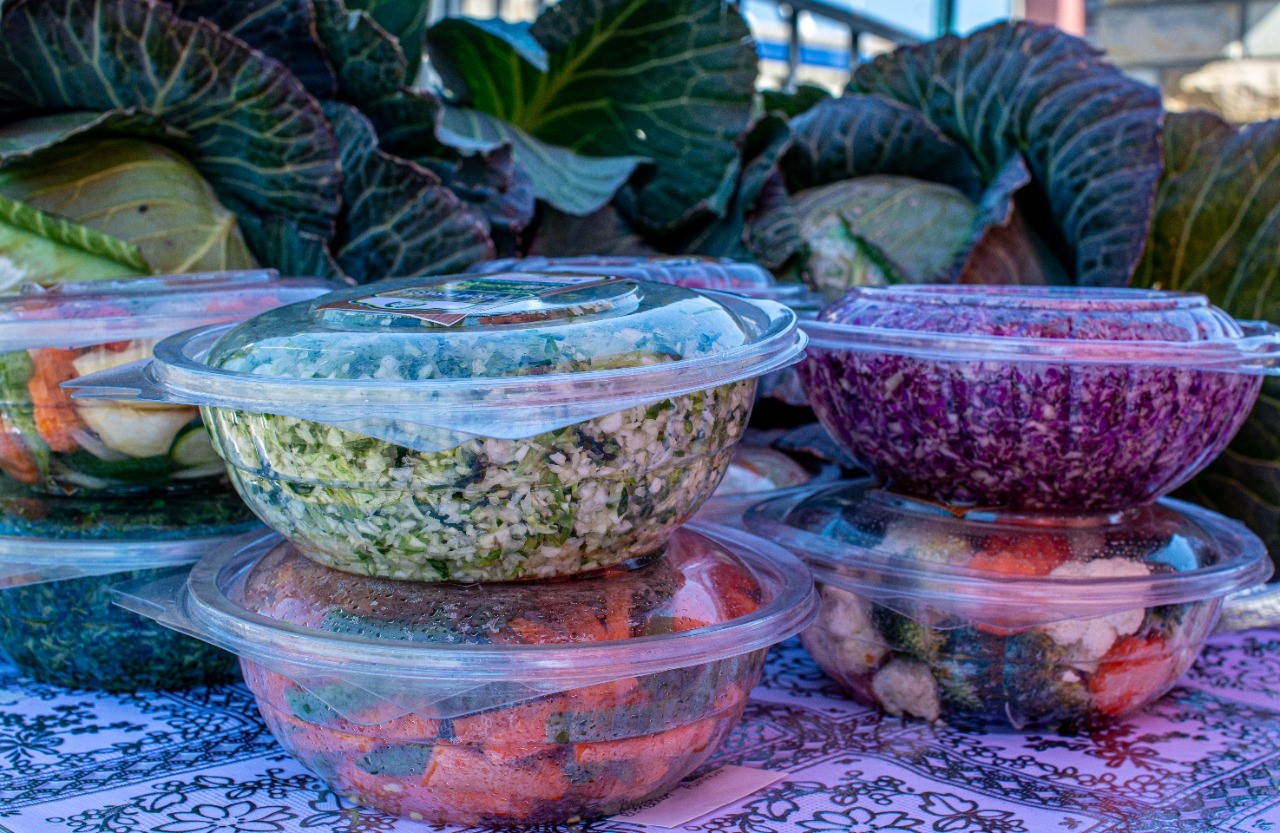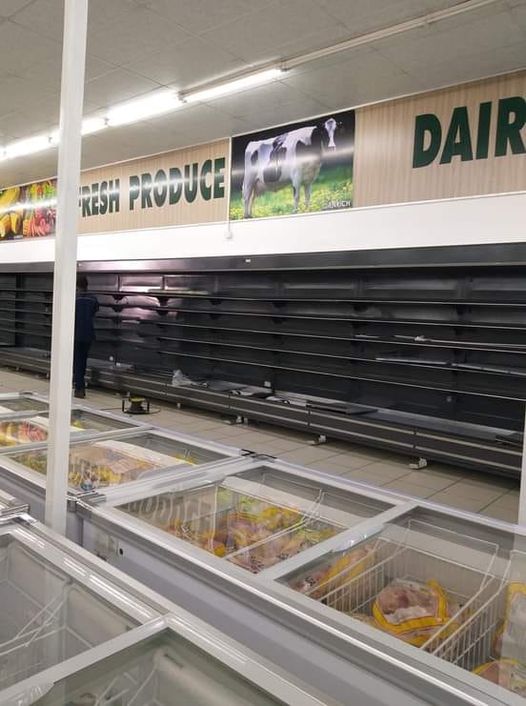She is busy like a bee! She nicknames her honey production centre in Mafeteng as “the Bee Innovation Hub.” In there, sister Julia ‘Masina Mafike produces honey and nine different wines from honey. She also produces bee wax, propolis, body creams, bee glue and, in the time of covid, honey based herbal flu relief mixtures.
She has deep ties with the National University of Lesotho (NUL) in general, and the NUL Innovation Hub in particular. “I have a memorandum of understanding with the university, and I collaborate with the NUL Department of Nutrition,” she said. “I have also been working with the NUL Innovation Hub which has assisted a lot in marketing.”
[Contact her here: http://www.jmmbeekeeping.co.ls]
“I do bees for fun,” she said.
But when you visit her “Bee Innovation Hub,” you will realize that fun is just part of the picture!
Today, she is going to take us through the mysteries of the wonder animal called bee that produces honey, propolis and wax. We are doing this because, well, according to one bee enthusiast, “…bees rock! They are amazing creatures that work together in ways that sometimes put humans to shame.”
For a layman, bees are mostly known for producing honey and that’s it. Boy, oh boy! Bees do more than just honey, they ensure that you (yes, you the reader) can live!
When they pollinate the plants, you get your daily bread—and you live!Forget politicians, bees rule the world.
[Join PhuthaLichaba, the future bank of the people by NUL Innovation Hub here: www.phuthalichaba.com ].
Many a layman have heard little about a product called propolis, a wonder material which is said to have antibacterial, antiviral, antifungal, and anti-inflammatory properties.
It is made by bees.
“Bee keeping starts with getting the beehive right,” she started to relate the lessons learned after long interaction with bees. In order to understand beekeeping at all, we need to understand who bees really are and why they do what they do.
Bees can be divided into three. We have the female bee called the Queen whose job is to make babies. At her best, she can make 1500 baby bees a day! Although a limited number of virgin Queens can be raised in a bee colony, only one Queen must remain, after fighting and killing the rest (thamahane ha li robale ‘moho). We also have the male bees whose job is to mate with the Queen and we have the (female) worker bees whose job is work, more work, always work.
Queens are made into Queens by the food they are given. They eat what is called royal jelly which gives them different features compared to ordinary female bees.
Only Queens eat such delicacies.
“The worker bees are very busy,” said the sister who enjoys a close contact with bees each day. You’ve got mortuary bees who bury dead bees. “Before you sweep them away, the mortuary bees have already taken them, never to be seen again.”
Queen attendant bees make sure that the Queen is well fed and is in good shape. They also feed baby male bees until they grow to feed themselves. Some worker bees do pollen packing, honey sealing, honeycomb building, cooling the hive, water collecting, and searching for food; pollen and nectar.
A day in a bee’s life is a busy, busy day.
So when you want to make a new beehive, “you will take some swarm of bees in a manner that ensures there is at least a Queen or Queens in the population,” she said. Then a new Queendom is born [note to the reader: there is no such thing as “kingdom” in the bee word].
Although all bees were created equal, some are more equal than others—that is, those who create honey. Many bees just search for and collect pollen, which is rich in protein. But honey bees take nectar and pollen and produce honey, beeswax, propolis and royal jelly out of it.
Why do they make honey?
Although they (might) also have you in mind when they pollinate crops, they make honey only for themselves. It is their food. And they need it, O! That is because few of us are as busy as bees. For instance, a bee can flap its wings a whopping 11,000 times per minute! It needs a lot of energy from honey to achieve that feat!
And bees make enough honey such that if they were to face a drought, and therefore lack of nectar, pollen, etc, they could survive for several years with just the stored honey! Since that doesn’t happen a whole lot, it is the reason bees are able to share their honey with you, the (lazier) human.
Bees are not bad!If you eat honey, you are in the lucky species. In it, you get 18 different types of amino acids and vitamin B, vitamin B6, vitamin C, calcium, iron, zinc, potassium, magnesium, chromium, and antioxidants like flavonoids, plus tonnes of sugar for energy.
So how do you join the lucky few?
Find her products here: (1) Catholic Training Centre, Wepener Road, Mafeteng, (2) BEDCO, Mafeteng, (3) Cosmetic World and Pharmacy, Mafeteng , (4) Living and Loving Chemist, Opposite Lesotho High School, Maseru, (5) Falimehang General Cafe, Ha Thetsane, Maseru, (6) Thaane Holdings, Botswana and (7) NUL and Innovations Hub, Roma.
[Join PhuthaLichaba, the future bank of the people by NUL Innovation Hub here: www.phuthalichaba.com]





